Research and Thought Leadership (RTL)

SEARCA, through the Research and Thought Leadership Department (RTLD), conducts relevant deep research in agricultural and rural development to produce knowledge and contribute to policies and programs that create transformational innovations at the local, national, and regional levels. RTLD initiates thought leadership and collaborates with relevant organizations and institutions in implementing on-the-ground interventions that improve the lives of farmers and rural communities. Through the SEARCA support programs and the knowledge platform, it will continually engage Southeast Asian (SEA) researchers and scholars to cater to emerging trends and issues to help provide suitable technical services to SEA countries and the ASEAN. Aligning these services with the Sustainable Development Goals (SDGs), SEARCA aims to create big ripples of impact that will reach the farmers more effectively.
For SEARCA's Eleventh Five-Year Plan (11th FYP), RTLD will be implementing programs and activities under three functional areas, namely Research for Development (R4D), Policy and Program Advisory (PPA), and Agriculture, Forestry and Natural Resources (AFNR) Knowledge Platform.
RTLD contributes to the production of various forms of knowledge resources generated from its research and related activities. These knowledge products are made available to various stakeholders online and/or in print. Moreover, RTLD continues to spearhead the implementation of research and travel grants as well as the Fellows programs. In its 11th FYP, the Center through RTLD, will also be offering individual and collaborative research grants under a mentorship program, and a research internship program. Likewise, SEARCA launches the young achievers' award in agricultural and rural development (ARD) in Southeast Asia as part of its strategic intent to strengthen transformational leadership for ARD as well as promote youth engagement in agriculture. The Award aims to recognize the role of young individuals in accelerating transformation through agricultural innovation that contributes to the achievement of SDGs.
-
Research for Development (R4D)
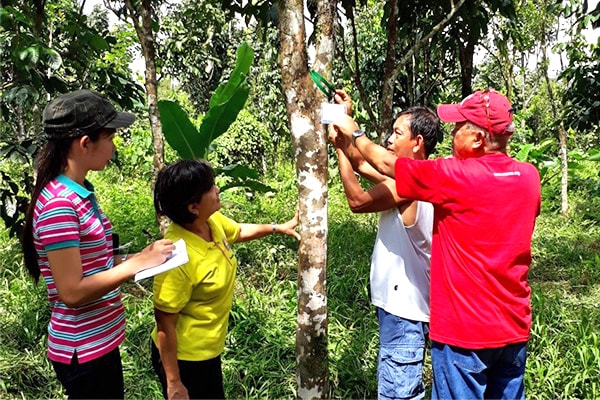 SEARCA's steadfast commitment to strategically deliver transformative outcomes and impacts to key partners and stakeholders, particularly farmers and farming families, the Research and Thought Leadership Department (RTLD) will produce meaningful research in agricultural and rural development that will create innovations leading to transformational change. These research for development (R4D) will include:
SEARCA's steadfast commitment to strategically deliver transformative outcomes and impacts to key partners and stakeholders, particularly farmers and farming families, the Research and Thought Leadership Department (RTLD) will produce meaningful research in agricultural and rural development that will create innovations leading to transformational change. These research for development (R4D) will include:- A multi-stakeholder approach in the conceptualizing, designing, and implementing proven modern technologies, innovative processes, and dynamics that can transform agricultural systems for long-term sustainability.
- Enhanced visibility in, and strengthen partnerships and collaborations with, Southeast Asian countries through the implementation of SEARCA support programs and activities.
Main Components
- Participatory Action Research – PAR will be directed at gaining knowledge or understanding of a condition/state to enable the delivery of outputs and outcomes that are more closely and clearly aligned with the specific needs of farmers and farming families and other stakeholders and key partners.
- Scale-up/Scale-out of Successful Research Models – Proven models, programs, products, and services, modified for context-relevance, will be scaled for adoption by the wider national and regional ecosystems to ensure that resulting benefits will be extensively shared.
SEARCA continues to conduct research studies in collaboration with partner institutions that are evidence-based, comparative, scoping, and integrative, including among others the following:
- Upgrading the Calamansi Value Chain towards Improving the Calamansi Industry of Oriental Mindoro
- Development of the Coconut Industry Growth Areas in the Province of Quezon
Moreover, the Center has successfully implemented the following research projects and studies that staged significant outcomes and impacts in the region:
- Research projects in the Philippines under SEARCA's Program on Piloting and Up-scaling Effective Models of ISARD:
- Strengthening Linkages among Farmers, Government, and Industry Sector for Inclusive and Sustainable Rural Development in Inopacan, Leyte
- Revitalizing Calamansi Industry in Victoria, Oriental Mindoro through Strengthening Linkages Among Farmers, LGU, NGAs, SUCs, CSOs and the Private Sector: An ISARD Pilot Model
- The School-plus-Home Gardens Project
- Research projects and studies in the region under the Umbrella Program on Food and Nutrition Security for Southeast Asia in collaboration with the Southeast Asian University Consortium for Graduate Education in Agriculture and Natural Resources (University Consortium) and its partner universities
- ASEAN Working Group on Social Forestry Strategic Response Fund (ASRF) under the ASEAN-Swiss Partnership on Social Forestry and Climate Change Phase III
- Agricultural Transformation and Market Integration in the ASEAN Region: Responding to Food Security and Inclusiveness Concerns
-
Policy and Program Advisory (PPA)
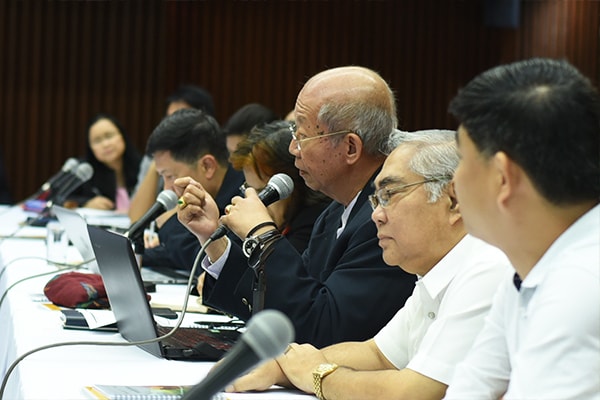 Central to SEARCA's resolve to be strategically visible and more relevant for all stakeholders and strategic agricultural and rural ecologies, the RTLD will provide policy and program advisory services, thought leadership, and policy research/analysis services for all Southeast Asian countries at the local, national, and regional levels. These services, aimed at providing evidence-based information and recommendations for the development of policies and regulatory frameworks in support of agricultural and rural development (ARD) in the region, will be implemented through activities such as:
Central to SEARCA's resolve to be strategically visible and more relevant for all stakeholders and strategic agricultural and rural ecologies, the RTLD will provide policy and program advisory services, thought leadership, and policy research/analysis services for all Southeast Asian countries at the local, national, and regional levels. These services, aimed at providing evidence-based information and recommendations for the development of policies and regulatory frameworks in support of agricultural and rural development (ARD) in the region, will be implemented through activities such as:- National/Regional Policy Roundtables focusing on current agricultural policy issues in the region and come up with sound recommendations and concrete plans of action through a multi-stakeholder approach.
- Policy Studies/Researches or in-depth review/analysis of new and existing agricultural policies in the region to provide evidence-based information and recommendations to support policymakers and other relevant stakeholders in policy development
- Policy Briefs/Papers or policy documents that will highlight and share the results of its policy studies/researches to disseminate "just-in-time" information and recommendations for policymakers and other relevant stakeholders in simplified and concise forms appropriate for its intended audience
Main Components
- Thought Leadership – RTLD engages in services that can assist lawmakers, state leaders, technocrats, and farmer leaders in crafting and implementing thought leadership strategies.
- Policy Research – RTLD provides services in terms of policy research, formulation, and evaluation relevant to member states and leaders at the local, national, and regional levels.
As SEARCA commits to accelerate transformation that elevates the quality of life of agricultural families, the Center currently embarks on analysis of public policy researches in the Philippines, Indonesia, and Vietnam in collaboration with the International Fund for Agricultural Development (IFAD) and the Food and Agriculture Organization (FAO) to develop background papers and use them for the development of a modular program that will contribute to the implementation of the main objective of the Global Action Plan of the UN Decade of Family Farming 2019-2028, and to serve as a tool for countries to develop public policies for the support of family farming.
In addition to this, SEARCA implements a collaborative policy research study that aims to provide evidence-based policy formulation and planning as well as cross-country analysis of different stages of rural development and transformation in China, Vietnam, and the Philippines. Dubbed as Rural Regional Transformation: Pathways, Policy Sequencing, and Development Outcomes in China, the Philippines, and Vietnam (RRT), the study is designed to develop a better understanding of different aspects of rural transformation including the following: pathways of rural transformation; sets of policies that can contribute to the success of rural transformation; policies and their sub-national and regional level impacts to growth, equity, and poverty at various stages of rural development; and risks associated to different pathways and policy sequencing.
-
SEARCA Agriculture, Forestry, and Natural Resources (AFNR) Knowledge Platforms
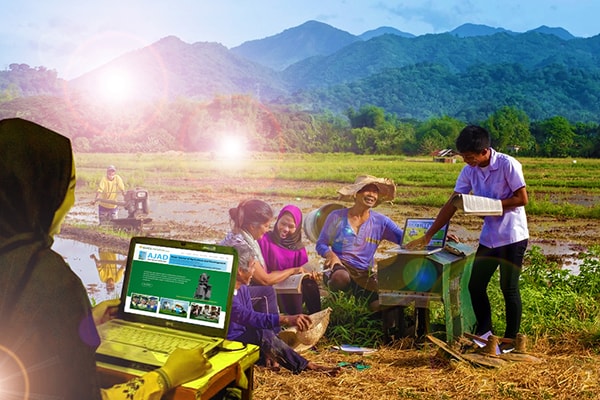 With SEARCA recognizing the importance of having an accurate, highly credible, sound, timely, and reliable source of information that will fuel future research activities and various knowledge-sharing initiatives to accelerate agricultural transformation through agricultural innovation, the RTLD leads in setting up the AFNR Knowledge Platform. This platform aims to create an enabling environment that will accelerate agricultural innovations by creating opportunities for knowledge sharing and learning with various stakeholders. Specifically, it aims to:
With SEARCA recognizing the importance of having an accurate, highly credible, sound, timely, and reliable source of information that will fuel future research activities and various knowledge-sharing initiatives to accelerate agricultural transformation through agricultural innovation, the RTLD leads in setting up the AFNR Knowledge Platform. This platform aims to create an enabling environment that will accelerate agricultural innovations by creating opportunities for knowledge sharing and learning with various stakeholders. Specifically, it aims to:- Set up and maintain an online repository of data, studies, and insights on agricultural and rural development.
- Facilitate institutional information management.
- Develop and distribute information, education, and communication materials regarding AFNR innovations.
- Convene proactive collaborations with both the public and private sectors in the delivery of information on agricultural innovations.
- Conduct regular monitoring and evaluation of knowledge sharing initiatives.
Main Components
- Knowledge Platform – Harnessing its rich pool of resources, SEARCA, through RTLD, together with its partners is building up an online platform wherein our stakeholders can gain access to research results/data that can be used to support policy interventions, institutional innovations, and guide future researchers that will fast-track agricultural development for Southeast Asia.
- Knowledge Center – As a trusted source of knowledge on agricultural and rural development, RTLD will continue to work with various partners in developing knowledge materials and in supporting content development for the SEARCA's social media channels. These are opportunities to bridge knowledge gaps and be able to maximize the potential of research for development.
SEARCA, in partnership with the University of Southern Queensland (USQ), implements a project to demonstrate the potential of data and modeling platforms to build capacity for agriculture researchers in using data from different sources and to access modeling and data analytic tools. This project will then focus on the development of a tool called AgPractices&Domains Platform that aims to target integrated pest and disease management options in rice based cropping systems considering abiotic stresses and biotic stresses.
Meanwhile, for the past few decades, SEARCA has established science-based information and knowledge portals on agricultural and rural development with particular thematic focus on food and nutrition security, agricultural biotechnology, and climate change adaptation for agriculture and natural resource management in Southeast Asia. These knowledge portals provided access to scholarly resources and publications, R&D findings, best practices, insightful lessons, and success stories from SEARCA and other relevant institutions' initiatives in the region.
-
Grants and Fellows Program
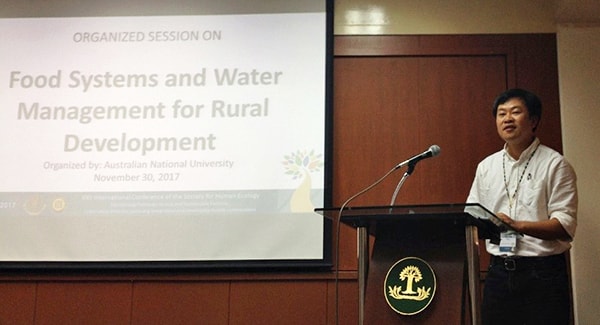 In line with the Center's strategic intent of accelerating transformation through agricultural innovation, SEARCA, through RTLD, provides opportunities for scholars and development practitioners to the advocacy and promotion of ARD through research and related initiatives. The grants and fellows program are among SEARCA's interventions to provide strategic capacity building and institutional development services for Southeast Asia and beyond. These opportunities include:
In line with the Center's strategic intent of accelerating transformation through agricultural innovation, SEARCA, through RTLD, provides opportunities for scholars and development practitioners to the advocacy and promotion of ARD through research and related initiatives. The grants and fellows program are among SEARCA's interventions to provide strategic capacity building and institutional development services for Southeast Asia and beyond. These opportunities include:- Travel Grants
- Individual and Collaborative Research and Mentorship Program
- Visiting Research Fellows Program
- Adjunct Fellows Program
- Research Internship Program
Young Achiever Award in Agricultural and Rural Development (ARD)
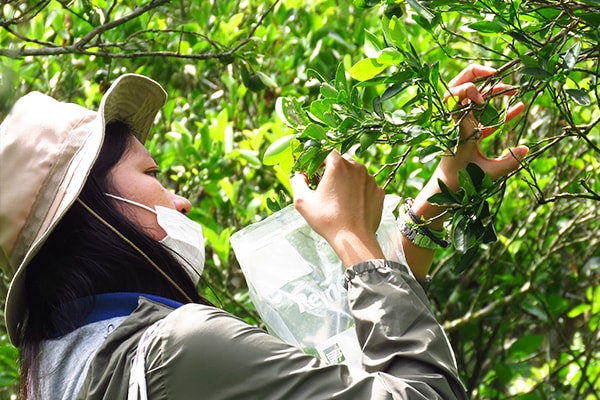 In SEARCA's pursuit to honor excellence, leadership, and service in advancing agricultural and rural development in Southeast Asia, the young achiever award in ARD will be given by SEARCA, in collaboration with key partners, to exemplary young individuals in the region. The objective of the award is for re-engaging the youth and recognizing young individuals who have advanced ARD in the region through their leadership, innovation, and achievement. These young individuals have demonstrated workmanship and commitment in accelerating transformation through agricultural innovation that contributes to the achievement of the Sustainable Development Goals (SDGs).
In SEARCA's pursuit to honor excellence, leadership, and service in advancing agricultural and rural development in Southeast Asia, the young achiever award in ARD will be given by SEARCA, in collaboration with key partners, to exemplary young individuals in the region. The objective of the award is for re-engaging the youth and recognizing young individuals who have advanced ARD in the region through their leadership, innovation, and achievement. These young individuals have demonstrated workmanship and commitment in accelerating transformation through agricultural innovation that contributes to the achievement of the Sustainable Development Goals (SDGs).From 2008 to 2015, SEARCA has awarded the Dioscoro L. Umali Achievement Award in Agricultural Development to recognize exemplary contributions in the field of agriculture and rural development. It is a collaboration among SEARCA, the National Academy of Science and Technology, Philippines (NAST, Philippines), and Dioscoro L. Umali Foundation, Inc. (DLUF). The achievement award covers a full range of fields including plant and animal sciences, land and water management, environment and natural resource management, technology development, social organization, food security, poverty reduction, economics and business, and policy and governance, among others.
Publications
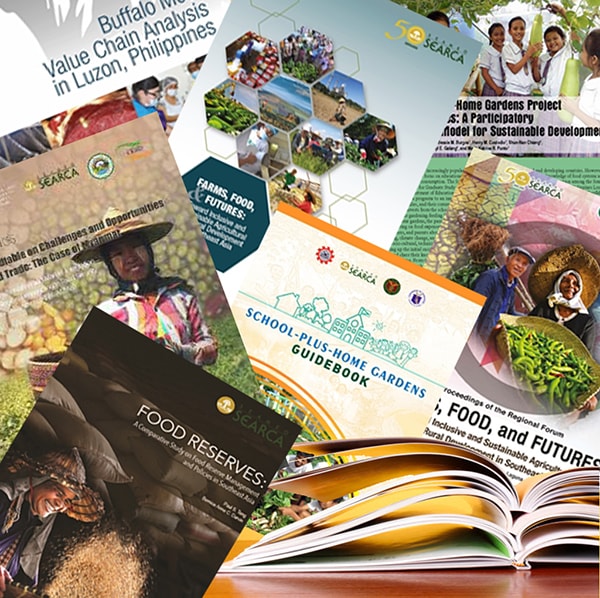 Research studies and findings are translated into knowledge products that are made available to various stakeholders. Moreover, RTLD contributes to the production of various forms of knowledge resources that include:
Research studies and findings are translated into knowledge products that are made available to various stakeholders. Moreover, RTLD contributes to the production of various forms of knowledge resources that include:- research-based policy briefs
- discussion paper series
- primers
- monographs
- conference proceedings
- books
- articles for the Asian Journal of Agriculture and Development
Contact Information
For inquiries, please contact:
Southeast Asian Regional Center for Graduate Study and Research in Agriculture (SEARCA)
College, Los Baños, 4031 Laguna, Philippines
Tel: +63 49 554 9330 to 39; +63 49 536 2290; +63 49 536 4105; +63 2 8657 1300 to 02 local 3400 to 3403
Fax: +63 49 536 7097



